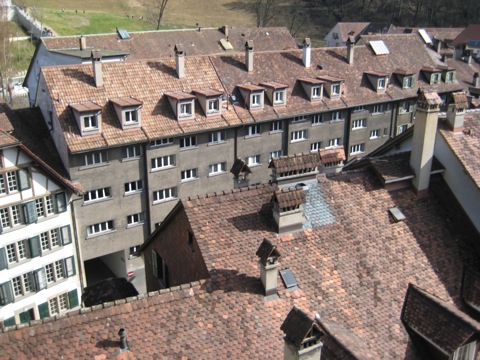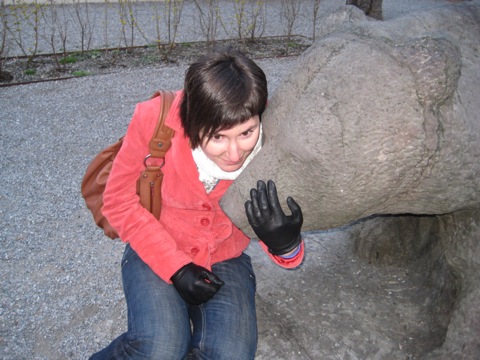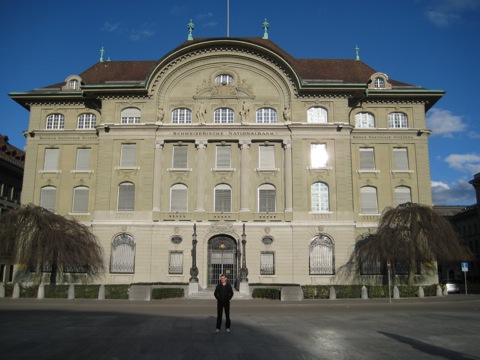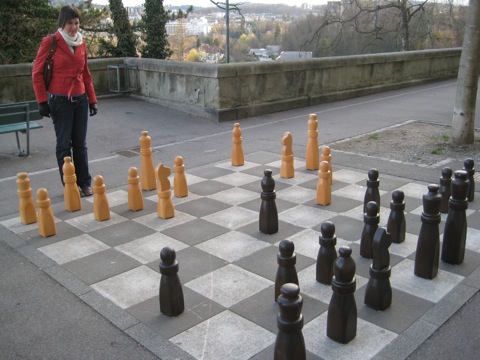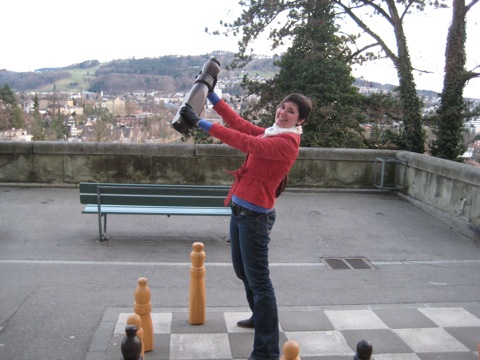Category: Finance
Zij bestaan voor ons. Wij bestaan niet voor hen.
The rules of scuba diving
- First rule. You must understand the rules of scuba diving. If you don’t know or understand the rules of scuba diving, go to the second rule.
- The second rule is that you never dive alone.
- The third rule is that you always keep close enough to each other to perform a rescue of any kind.
- The forth rule is that you signal each other and therefor know each other’s signals. Underwater, communication is key.
- The fifth rule is that you tell the others, for example, when you don’t feel well. The others want to know when you emotionally don’t feel well. Whenever you are insecure, you tell them. This is hard.
- The sixth rule is that you don’t violate earlier agreed upon rules.
- The seventh rule is that given rules will be eclipsed the moment any form of panic occurs, you will restore the rules using rationalism first, pragmatism next but emotional feelings last. No matter what.
- The eighth rule is that the seventh rule is key to survival.
These rules make scuba diving an excellent learning school for software development project managers.
The undoable editor that can open > 4 GB text files
We are making an editor for industrial uses at Heidenhain. This is to make big Klartext programs, editable. I’m sure other industries could also use that.
Nowadays these programs often come out of a conversion from a CAD-CAM format. Before you can mill and turn your pesky military secrets on one of the machines controlled by a Heidenhain set, you’ll have to tweak the program that you converted from your CAD-CAM product. We are making the editor for that.
I wrote on this blog how we will instantaneously open those >4GB files, ready for editing. It looks a lot like how I made the E-mail client modest open the headers instantaneously on the N900. Basically, having a partition or index table that gets mmapped.
We’re also making the overlaying (the changes made by the user) undoable. The APIs for that kinda look like this. All examples on my blog are amateur extracts of the real thing, of course.
I feel like it’s actually going to work out. Architecturally and organizationally the other developers in our team are getting at the right level of expertise and sense of wanting this.
That is most important for anything to make it happen.
It feels a bit like how Nokia was: I’m learning a lot about myself from techleading: how to propose a design, concept or idea; how to convince deeply technical people; how to push others to go further than what they can already do. How to make a team quit competing and start sharing a common goal. The infrastructure for that was provided to me by Nokia. At Heidenhain, I feel like having played a small role in it.
Perfection
Perfection has been reached not when there is nothing left to add, but when there is nothing left to take away.
Merkel bashing
It seems to be the new sport of nitwit moronic world leaders like Trump and Erdogan to bash Frau Merkel.
It makes me respect her more.
Aanmaakblokskensnaft
Er is iets waar ik mij al een tijdje onwaarschijnlijk druk in maak: Aanmaakblokskens.
Er bestaat een bepaald merk aanmaakblokskens die geen ECO label hebben (dus hun marketingjongens hebben de moeite niet gedaan om de drukker van het kartonneke te vragen er ECO bij te frommelen). Die blijken kei goed te werken. Want daar zit, vermoedelijk, gewoon naft of zo in. Dus, dat werkt. Logisch.
Daarnaast heb je ongelofelijk veel andere merken die niet werken. Je moet er letterlijk twintig tot dertig seconden een vlam op houden. Daardoor heb je meer aanstekergas nodig, verbrand je vaker je vingers en maak je je handen sneller vuil aan de kachel. Met andere woorden, die werken niet.
Dingen die niet werken verkopen na een tijd niet goed.
Dus nu ligt er in tal van supermarkten een te veel aan zogenaamde ecologische aanmaakblokjes, en een te kort aan dat goeie merk. Dat merk dat dus wel werkt.
Nu vraag ik me af: die paar milligram naft, of wat er ook in die goeie blokskens zit, is dat nu zo erg om dat op te fikken als je in je wagen vijftig liter van dat spul tankt? Ik bedoel: een keer draaien met uw stuur op de parking van de supermarkt en je hebt al een paar jaar aanmaakblokjesnaft verbruikt.
Ik wilde het toch maar even kwijt.
The Internet of crap – The Ioc. Now In Store!
Like I mentioned a few months ago, here we are again. More things equals more crap on the Internet. Not more utility. No. More crap. It’s only crap. With lower case ‘c’. The crap of the crap programmers of the crap is not worth wasting an expensive capital letter on.
Time to require CE marking for all that crap. Enough is enough.
Experimentieel artikeltje over economie
Een consument kan zijn geld maar één keer uitgeven. Maar men geeft het wel uit onderheving aan inflatie. Dit wil zeggen dat wanneer we een goed kochten in juni 2006, bv. een auto, dat het uitgegeven geld, volgens de EUCPI2005 index, zo’n 17,95% goedkoper is in 2016. Louter op basis van inflatie. Dit was zo tijdens een decennium met jaren van quasi deflatie (= ongezien). Toch halen we bijna 18% waardevermindering op tien jaar.
Wat gebeurt er economisch wanneer de consument betaalt met privacy? Men zal in de toekomst immers een deel van de auto betalen d.m.v. privacy op te geven: de prijs van die wagen zal dalen precies omdat allerlei organizaties zich gaan bezig houden met locatiedata van de consument (en weet ik veel wat nog allemaal). De consument betaalt dat deel met wat ik privacy-currency zal noemen.
Mijn eigen inzicht is dat een privacy-currency weliswaar meervoudig uitgegeven wordt; oude gegevens worden steeds minder waard. Maar diensten die met privacy-currency werken hebben vaak een langdurige stroom bij haar consument bemachtigd. Daarmee bedoel ik dat het over een sensor gaat (een smartphone met pervasieve app, een thermostaat die jaren aan de muur hangt, een digicorder die dankzij monopolie jaren lang TV-kijkgewoontes vastlegt) die niet éénmalig maar wel steeds weer dezelfde consumentenprivacy “verkoopt” aan het bedrijf.
Zo’n sensor kan slechts enkelmalig geïnstalleerd worden. Want de markt zorgt ervoor dat een privacygegeven zo goedkoop mogelijk geëxtraheerd wordt. Vijf keer vastleggen wat de TV-kijkgewoontes van een consument zijn, heeft in de markt geen nut: de markt zal de efficiëntste verkiezen. Die zal het aan de anderen verkopen.
Dit wil voor mij zeggen dat privacy-currency in inflatie zal gaan. De currency wordt steeds minder waard. De installatie van een sensor heeft nu een zekere prijs (je moet je dwaze product aan de man brengen), maar zal in de toekomst steeds minder opbrengen.
Voorts kost het voor de consument steeds meer om zijn of haar privacy op te geven: men verliest opties bij verzekeringen, men verliest werkgelegenheid, men verliest vriendschappen en zal gepest of aangesproken worden. Typisch zijn oudere mensen dan ook meer gesteld op hun privacy. Ze verkopen hun privacy steeds duurder. Hun ongeletterdheid in technologie ontwijkt dit nog even; maar iedereen weet dat dat van korte duur is.
Dit geeft dat er twee vectoren zijn die de privacy-currency in inflatie doet gaan: de markt maakt een sensor minder veel waard uit efficiëntieoverweging, en de consument maakt een sensor minder wenselijk door een kleine maar niet onbestaande vergroting van kennis in technologie (en haar kwalen).
Bedrijven die hun waarde in de vermeerdering van privacy-currency leggen, zullen op middellange termijn failliet gaan. Want zelfs geld is een betere focus. De financiële sector heeft het traditioneel dan ook goed.
Again
I’m in agreement with what Richard has to say in this specific context.
RE: Toeristen, geef alstublieft een extra stukje privacy prijs (opiniestuk CEO van Thomas Cook, De Tijd)
Toeristen, geef alstublieft een extra stukje privacy prijs, zodat we U en uw koopgedrag nog meer en beter kunnen tracken bij Thomas Cook.
We hebben de neiging minder flexibel te zijn als het om onze privacy gaat. Maar we zullen niet anders kunnen dan onze privacy voor een stuk opgeven. Voor onze eigen veiligheid, zodat de overheden kunnen screenen wie op welke vlucht zit. Die evolutie zagen we al na de aanslagen van 11 september 2001 in New York.
Hoe juist helpt het dat Thomas Cook weet wie op welke vlucht zal zitten? De veiligheidsdiensten weten dat trouwens nu al. Hoe helpt dit wanneer iemand lang voor om het even welke identiteitscontrole in de vertrekhal een bom laat afgaan? Hoe heeft dat securitytheater na 9/11 trouwens om het even welke aanslag vermeden? Welke bewijzen zijn er dat het geholpen heeft? Welke bewijzen zijn er dat de in extreme zin toegenomen surveillance helpt?
Dit ruikt sterk naar goedkope politieke recuperatie van een stuk menselijke ellende. Jan Dekeyser, CEO van Thomas Cook België, wil U en uw koopgedrag kunnen tracken. Zodat hij veel geld met uw privacy kan verdienen. Nog meer geld. Hij roept daarvoor op nu dat de mensen bang zijn en bereidwillig hun privacy op te geven. Van timing gesproken.
We moeten nu ook van de CEO van Thomas Cook onze Facebook profielen aan hem en zijn marketing afdeling geven. Dat zegt hij letterlijk in zijn opiniestuk:
Dat kan veranderen. Intussen heeft zowat iedereen een smartphone, een Facebook-profiel of een Twitter-account. Het is dus perfect mogelijk om via persoonlijke communicatie de bezorgdheid van de reizigers weg te nemen en hen rechtstreeks te informeren over hoe hun reis verder zal verlopen.
Waarschijnlijk kan je dus binnenkort geen klant meer zijn bij Thomas Cook tenzij je een Facebook profiel hebt waar hij en zijn bedrijf volledige toegang toe hebben. Zullen we de luchthaven nog wel binnenmogen tenzij hij en zijn bedrijven alles over U weten, zodoende hij U en uw koopgedrag volledig in kaart kan brengen?
Wanneer wordt het nu eindelijk eens duidelijk dat geen enkele hoeveelheid surveillance bovenop wat er nu reeds is, aanslagen zal voorkomen? In tegendeel zal de onnodige verdachtmaking onschuldige burgers net kwaad en wantrouwig tegenover hun overheid maken.
Dus neen, Jan Dekeyser CEO van Thomas Cook België, ik geef niet een extra stukje privacy aan U en uw marketing mensen prijs. Onze veiligheidsdiensten weten nu al perfect wie er op welke vlucht zit. Die databases bestaan al.
Geef de actoren verantwoordelijk voor het doorspelen van informatie naar de juiste diensten en mensen een betere opleiding, verhoog getalmatig manschappen en budgetten en werk met de informatie die er al is. M.a.w. doe als ambtenaar in een veiligheidsfunctie uw job.
Maar een Thomas Cook moet echt niet nog meer van onze privacy weten.
RE: Scudraketten
Wanneer Isabel Albers iets schrijft ben ik aandachtig: wij moeten investeren in infrastructuur.
Dit creëert welvaart, distribueert efficiënt het geld en investeert in onze kinderen hun toekomst: iets wat nodig is; en waar we voor staan.
De besparingsinspanningen kunnen we beperken wat betreft investeringen in infrastructuur; we moeten ze des te meer doorvoeren wat betreft andere overheidsuitgaven.
Misschien moeten we bepaalde scudraketten lanceren? Een scudraket op de overheidsomvang zou geen slecht doen.
Een week mediastorm meemaken over hoe hard we snoeien in bepaalde overheidssectoren: laten we dat hard en ten gronde doen.
Laten we tegelijk investeren in de Belgische infrastructuur. Laten we veel investeren.
Mr. Dillon; smartphone innovation in Europe ought to be about people’s privacy
Dear Mark,
Your team and you yourself are working on the Jolla Phone. I’m sure that you guys are doing a great job and although I think you’ve been generating hype and vaporware until we can actually buy the damn thing, I entrust you with leading them.
As their leader you should, I would like to, allow them to provide us with all of the device’s source code and build environments of their projects so that we can have the exact same binaries. With exactly the same I mean that it should be possible to use MD5 checksums. I’m sure you know what that means and you and I know that your team knows how to provide geeks like me with this. I worked with some of them together during Nokia’s Harmattan and Fremantle and we both know that you can easily identify who can make this happen.
The reason why is simple: I want Europe to develop a secure phone similar to how, among other open source projects, the Linux kernel can be trusted. By peer review of the source code.
Kind regards,
A former Harmattan developer who worked on a component of the Nokia N9 that stores the vast majority of user’s privacy.
ps. I also think that you should reunite Europe’s finest software developers and secure the funds to make this workable. But that’s another discussion which I’m eager to help you with.
Zürichsee
Today after I brought Tinne to the airport I drove around Zürichsee. She can’t stay in Switzerland the entire month; she has to go back to school on Monday.
While driving on the Seestrasse I started counting luxury cars. After I reached two for Lamborgini and three for Ferrari I started thinking: Zimmerberg Sihltal and Pfannenstiel must be expensive districts too… And yes, they are.
I was lucky today that it was nice weather. But wow, what a nice view on the mountain tops when you look south over Zürichsee. People from Zürich, you guys are so lucky! Such immense calming feeling the view gives me! For me, it beats sauna. And I’m a real sauna fan.
I’m thinking to check it out south of Zürich. But not the canton. I think the house prices are just exaggerated high in the canton of Zürich. I was thinking Sankt Gallen, Toggenburg. I’ve never been there; I’ll check it out tomorrow.
Hmmr, meteoswiss gives rain for tomorrow. Doesn’t matter.
Actually, when I came back from the airport the first thing I really did was fix coping with property changes in ontologies for Tracker. Yesterday it wasn’t my day, I think. I couldn’t find this damn problem in my code! And in the evening I lost three chess games in a row against Tinne. That’s really a bad score for me. Maybe after two weeks of playing chess almost every evening, she got better than me? Hmmrr, that’s a troubling idea.
Anyway, so when I got back from the airport I couldn’t resist beating the code problem that I didn’t find on Friday. I found it! It works!
I guess I’m both a dreamer and a realist programmer. But don’t tell my customers that I’m such a dreamer.
Bern, an idyllic capital city
Today Tinne and I visited Switzerland’s capital, Bern.
We were really surprised; we’d never imagined that a capital city could offer so much peace and calm. It felt good to be there.
The fountains, the old houses, the river and the snowy mountain peaks give the city an idyllic image.
Standing on the bridge, you see the roofs of all these lovely small houses.
The bear is the symbol of Bern. Near the House of Parliament there was this statue of a bear. Tinne just couldn’t resist to give it a hug. Bern has also got real bears. Unfortunately, Tinne was not allowed to cuddle those bears.
The House of Parliament is a truly impressive building. It looks over the snowy mountains, its people and its treasury, the National Bank of Switzerland.
As you can imagine, the National Bank building is a master piece as well. And even more impressive; it issues a world leading currency.
On the market square in Oerlikon we first saw this chess board on the street; black and white stones and giant chess pieces. In Bern there was also a giant chess board in the backyard of the House of Parliament. Tinne couldn’t resist to challenge me for a game of chess. (*edit*, Armin noted in a comment that the initial position of knight and bishop are swapped. And OMG, he’s right!)
And she won!
At the House of Parliament you get a stunning, idyllic view on the mountains of Switzerland.
Confoederatio Helvetica
It’s crossing my mind to move here in ~ two years.
Today we visited Zug; it has a Ferrari shop.
Zug, where an apartment costs far more than a villa in Belgium. Briefly a million euros.

It also comforts me. I could be here. Zug has a volière with exotic birds and a lake.
When Tinne and me were driving back to Oerlikon, we listened to Karoliina’s Symphonic dream.
The music; a canvas for the paint, Switzerland.
Die Lichter auf dem Berg. Die sind alle Seelen.
From grey mouse to putschist. That was quick.
Congratulations to Mr. Van Rompuy for helping the EU powers to find a compromise.
Diplomats credit him with a shrewd sense of deal-making and a determination that is belied by his quiet anti-charisma, and he has already begun to win plaudits from Paris, Berlin and other capitals.
— Financial Times, Saturday Mar 27 2010 (alt. link)
Finally a politician to be proud of as a Belgian!
The mouse is dull grey
It steps into the sunshine
The mouse is snow white
The future of the European community, a European Monetary Fund.
I’m worried about the EURO’s M3 if a European version of the IMF (a EMF) is to be installed.
Nonetheless, I think the European community should do it just to strengthen Europe’s economy. I’m not satisfied by Europe’s economic strength: I want it to be undefeatable.
We must not let the IMF solve our problems. Europe might be a political dwarf, but we Europeans should show that we will solve our own problems. We’re an adult composition of cultures with vast amounts of experience. We know how to solve any imaginable problem. And let’s not, in our defeatism, pretend we don’t.
A EMF is a commitment to future member states: Europe often asks them fundamental changes; economic strength is what Europe offers in return. This needs to come at a highest price: Greece will have to fix their deficit problem. Even if their entire population goes on strike. Greece will be an example for countries like my own: Belgium has to fix a serious deficit problem, too.
An EMF comes at an equally high price, and that frightens me a bit: I don’t want the ECB to go as ballistic on money creation as the FED has been last two years. I want the EURO to be the strongest relevant currency mankind has ever created. No matter how insane the rest of the world thinks that ambition is: I believe that keeping the EURO’s M3 in check is a key to creating a wealthy society in Europe.
Politically I want European nations to negotiate more and more often. The European Union is a political dwarf only because finding agreement is hard. But in the long run will our solution be the most negotiated, most tested on this planet.
Together we can deal with anything. That doesn’t mean it’ll be easy; it has never been easy: just seventy years ago we were still killing each other. We’re all guilty of that one way or another. And before that it wasn’t any better. Today, not that many people still care: “it wasn’t me”, right? So stop being a bitch about it, then.
It’s time to let it be. It’s time to start a new European century that will be better. With respect for all European cultures, languages, nations, nationalities, values, borders and interests.
But also a European century with economic responsibilities for each member. It’s our strength: we figured out how to keep our population wealthy: let’s continue doing so in the future.
Invisible costs
We would rather suffer the visible costs of a few bad decisions than incur the many invisible costs that come from decisions made too slowly – or not at all – because of a stifling bureaucracy.
— Letter by Warren E. Buffett to the shareholders of Berkshire, February 26, 2010
